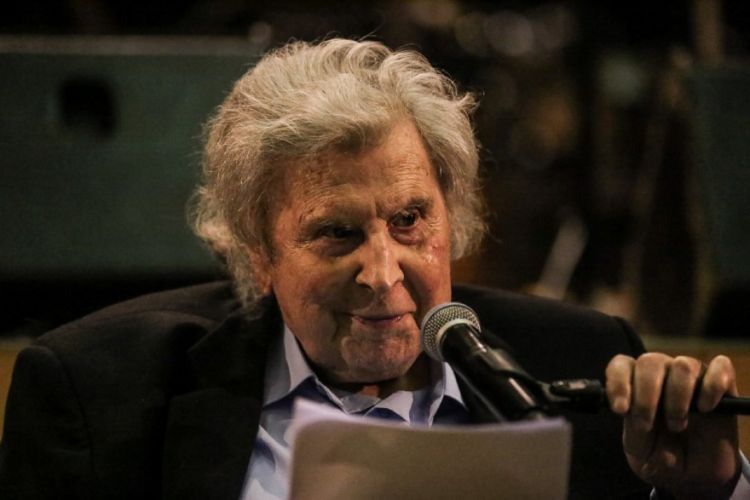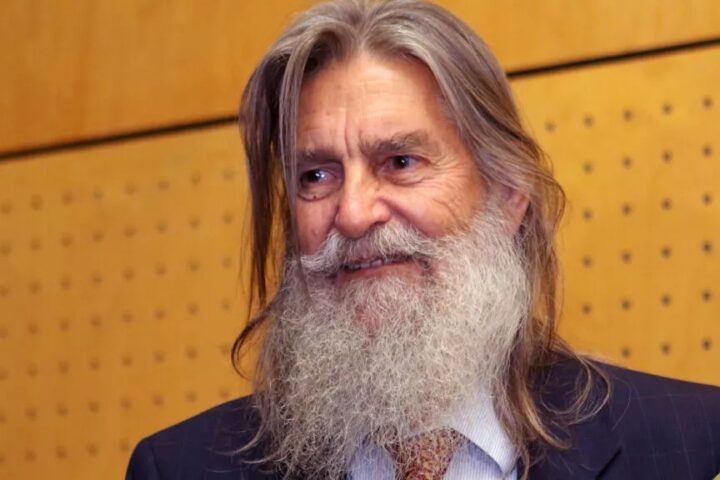Legendary composer, political activist, writer, and arguably the most famous modern Greek Mikis Theodorakis died at the age of 96 on Thursday.
Born on the island of Chios on 29 July 1925, Theodorakis left his mark on Greece’s political and cultural history.
The world-renowned composer symbolised the Greek people’s struggles against the Nazis during World War II and the military dictatorship in 1967.
A very outspoken political activist, he joined a reserve unit of ELAS, the military arm of the left-wing National Liberation Front (EAM) during the Greek Resistance against the Nazi occupation,
During the 1967-74 Greek junta, he was jailed, put under house arrest, and banned his work.
He was able to compose songs of resistance from his prison cell, which he sent abroad to be sung by Maria Farantouri and Melina Mercouri.
He left the country secretly for Paris in 1970.
Theodorakis studied music in Athens and later Paris, while his work ranges from rousing songs based on major Greek poetic works, many of which became left-wing anthems for decades, to symphonies and film scores.
He was the composer of perhaps the most recognisable Greek music score internationally, the syrtaki from the film “Zorba the Greek” (1964).
His songs were performed by famous artists, such as The Beatles, Shirley Bassey and Edith Piaf.
He composed the scores in films such as Z (1969), which won the BAFTA Prize for original music, Phaedra (1962), which included songs with lyrics by Nikos Gatsos, and Serpico (1973), for which he was nominated for a Grammy in 1975.
Theodorakis also composed the “Mauthausen Trilogy” — also known as “The Ballad of Mauthausen”, and the “Mauthausen Cantata” — a cycle of four arias with lyrics based on poems written by Greek poet Iakovos Kambanellis, a Mauthausen concentration camp survivor.
The legendary composer had long-standing ties to the Communist Party of Greece, for which he was an MP from 1981 to 1989.
However, Theodorakis crossed lines in 1989 when he ran as an independent candidate with the right-wing New Democracy party and became a minister in 1990 under Constantine Mitsotakis (father of the current Greek prime minister), only to resign in March 1992.
Theodorakis also campaigned for international peace, intervening in the Israel-Palestine peace process, giving concerts in Israel and Palestine and meeting with Yasser Arafat in 1972 to boost peace negotiations.
He was nominated for the Peace Nobel Prize in 2000.
In the past few years, he repeatedly had health problems and, in 2019, underwent heart surgery to place a pacemaker.










